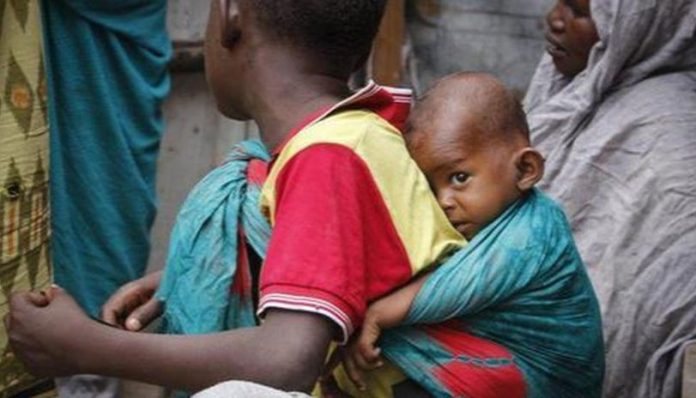Devastating floods, swarms of desert locusts and the continuing widespread impact of the coronavirus have struck residents in Somalia.
Devastating floods, swarms of desert locusts and the continuing widespread impact of the coronavirus have struck residents in Somalia.
Nearly 500,000 people have been displaced by recent flooding in the country’s central regions, whilst food supplies have been threatened by the invasion of locusts.
UN officials have warned that the combined effect of these issues plus the concern around the spread of the coronavirus could impact the political and security gains made in the country over the last decade.
“Somalia’s coping mechanisms are significantly less than those of the neighbouring countries,” Justin Brady, Head of Office at the United Nations Office for the Coordination of Humanitarian Affairs (OCHA), said.
“Therefore, the impact is not simply humanitarian but has the potential to reverse some of the political and security gains that the international community has invested in over the past decade,” he said.
The UN says it has been working with local authorities and partners to help those affected by floods in Somalia since November last year.
While some half a million people have been displaced, overall, more than a million people have been affected by flash and riverine floods in Somalia, the UN said.
Belet Weyne has been one the worst affected areas and first experienced severe flooding late last year.
Speaking at a camp for internally displaced persons in Belet Weyne, Hawa Gedi, a mother of four, pleaded for more help.
She said: “We are grateful to the humanitarian agencies for providing us with water and other basic needs, but we need more support. We need food. We have nothing to eat.”
According to the UN, Somalia has experienced 30 climate-related hazards, 12 droughts and 18 floods since 1990 – three times more the number of climate-related hazards experienced between 1970 and 1990.
In 2017, a severe drought left Somalia on the verge of famine. In 2019, a delayed and erratic Gu rainy season resulted in the poorest harvest since the 2011 famine and flooding.
The country is also battling its worst locust infestation for 25 years.
Brady said: “We expect to see a portion of the crops this year lost to the locust infestation, which will compound the food security and nutrition situation for many Somalis.”
The coronavirus has also led to major socio-economic disruptions across Somalia, including a reduction in remittances from the diaspora and a reduction in casual labour opportunities due to restrictions.
Source: Associated Press Television News






























